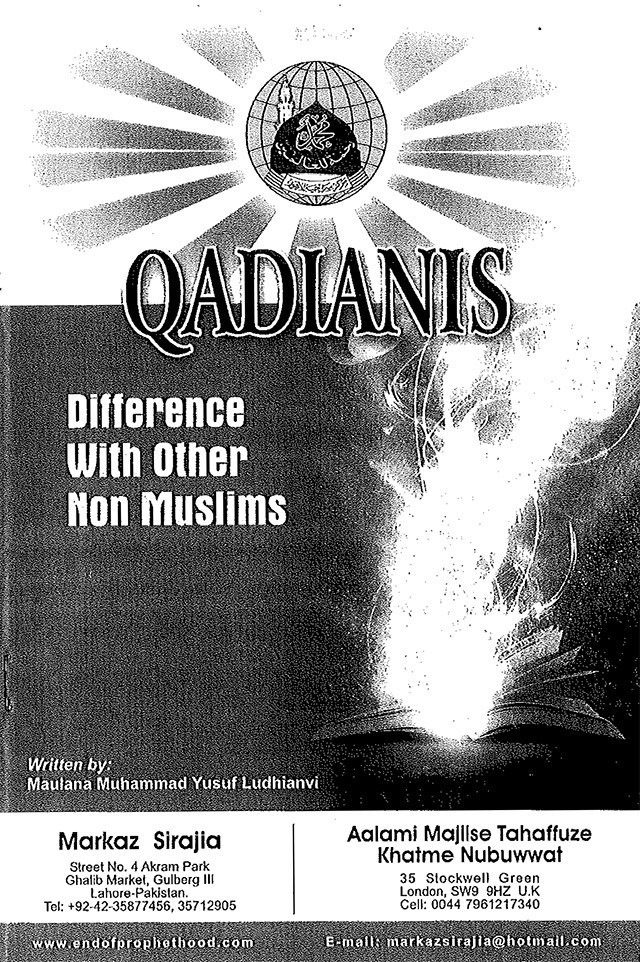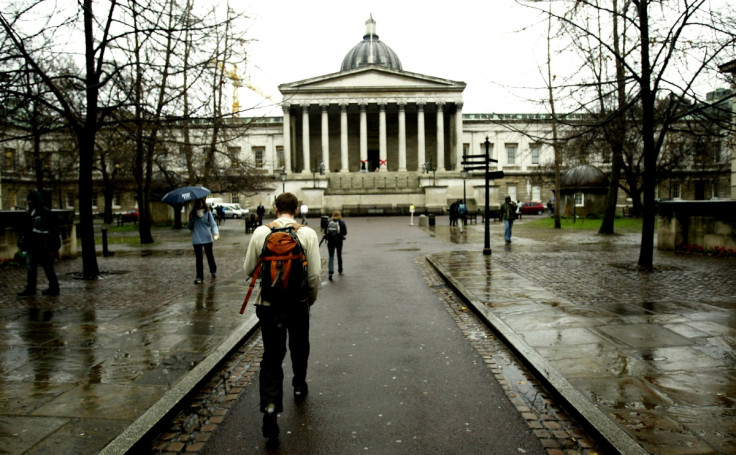Hate leaflets calling for killing of Ahmadi Muslims distributed across London

Leaflets calling for members of the Ahmadi Muslim community to be killed have allegedly been distributed in universities, mosques and shopping centres in London.
Followers of the Muslim Ahmadi sect, which preaches a message of peace and tolerance, have long been subject to violent attacks and persecution in Pakistan, where they are branded worse than apostates by hardliners and forbidden by the state to call themselves Muslims.
Now the wave of persecution appears to have spread to the UK, with a man admitting in a public statement that he killed Ahmadi shopkeeper Asad Shah in Glasgow for disrespecting Islam. The unusual statement coincides with the distribution across London of leaflets calling for followers of the religion to be killed.
I think the police are slightly clueless, or they don't want to recognise it because there are deep links to what is going on in Pakistan
A leaflet undersigned by the global anti-Ahmadiyya Khatme Nubuwwat organisation in Stockwell Green, and distributed in several London locations, has been obtained by IBTimes UK.
The group denies spreading anti-Ahmadiyya hate speech.
Entitled "Qadianis [a pejorative name for Ahmadiyya], Difference With Other Non-Muslims", it asks why "this group is considered wicked [sic] than others?" and declares for Muslims "to have any kind of relation with Qadianis is prohibited".

The hate literature goes on to describe various categories of "Kufr", or unbeliever, and brands Ahmadiyya as "dualist infidel" or "one who is bent upon presenting his 'Kufr' as Islam" and is "worse than an apostate". It prescribes the same punishment that is doled out for apostates (those who have renounced their own religion), advocating allowing followers a three-day period to "get back into the Islamic fold. If he does not, he is to be awarded capital punishment."

The leaflets have allegedly been distributed in several London locations over the last few years, sources in the Ahmadiyya community told IBTimes UK:
• In October 2012, the notices were distributed on the campus of University College London at an event held by the university's Ahmadiyya Students Association in response to the controversial anti-Islam film the Innocence of Muslims. Ahmadiyya student association members claim the leaflets were also distributed on subsequent occasions, but university authorities say they are not aware of this. They have also allegedly been distributed as recently as 2014 on the campuses of Kingston University and Westminster University, where Islamic State executioner Mohammed Emwazi studied.
• The anti-Ahmadiyya propaganda have been allegedly distributed to members of the public in Wandsworth Road and outside Tooting Market, south London, on several occasions in 2014 and 2015.
• They have also allegedly been distributed outside the Khatme Nubuwwat Academy office in Forest Gate, east London on several occasions in 2014 and 2015.
"You can have differences of opinion, but where it leads to hate, or incitement to violence, or promoting violence, it is unacceptable," Farooq Aftab, vice-president of the Ahmadiyya Muslim Youth Organisation, told IBTimes UK.
"[These leaflets] spread misinformation and mistrust, they pave the way for hatred."
On Thursday, 7 April, Glasgow Ahmadi community leader Ahmed Owusu-Konadu called on all Muslims to condemn the killing of Shah. Aftab said the message of intolerance had even spread to schools, with Ahmadi children bullied and ostracised by their peers. He added that he had been told of incidents in east London schools in which "kids are sitting with friends and are told we are not going to associate with you because you're an Ahmadi".
Aftab said that police had been informed repeatedly about the leaflets. "I think the police are slightly clueless, or they don't want to recognise it because there are deep links to what is going on in Pakistan," he said.
Abdul Fariq Khan, who ran an Ahmadiyya Students Association group at Manchester University, said that on campuses throughout the country, members of the Islamic Society called for Muslim students to boycott events held by Ahmadiyya students.
Our work is just to counter the propaganda of the Ahmadiyya religion, and their proselytisation among Muslim youth. For this work, they hate us
Akber Choudhry
"You will always find that there has been an email or somebody important from the society or the Muslim community of that university has said you should never be going to this kind of event, you should never talk to them or engage with them. And that happens very regularly and it is across the country," Khan said.
Mahrukh Arif, who has researched anti-Ahmadiyya prejudice in Britain, said: "I remember one Ahmadi student telling me they want us to declare ourselves non-Muslim and that is an imposition of their beliefs on us.. They don't have to right to ask us to change our topic. Just because they believe we are not Muslims."
Founded in British-controlled northern India in the late 19th century, the Ahmadi are considered heretical by other Muslims because they revere founder Mirza Ghulam Ahmad, who died in 1908, as the saviour.
After Ahmadiyya were prohibited in Pakistan from calling themselves Muslims in 1984, the group moved its headquarters to Morden, south London, where it faced renewed persecution from Muslim hardliners. In 2010, Ofcom penalised an Islamic satellite channel affiliated with Khatme Nubuwwat after it described Ahmadiyya as "liable for death".
In an email, Khatme Nubuwwat spokesman Akber Choudhry denied all allegations of propagating anti-Ahmadiyya hate speech. "We completely denied these unfounded allegations then, and we deny them now," he said.
"We believe in tolerance and the sanctity of every human life. Our work is just to counter the propaganda of the Ahmadiyya Qadiani religion, and their proselytisation among Muslim youth. For this work, they hate us and try to use more propaganda.
"Muslims, as citizens of the UK, have the right to associate with whoever they please. Muslims regard the Qadiani Ahmadiyya as a distinct religion, so the association may be limited by personal faith and preference," he added.
University College London spokeswoman Ruth Howells said that after receiving a complaint about the leaflets "University College London Union acted immediately and the Sabbatical Officers at the time met with those involved". She added that "the Dean of Students (Welfare) was also advised of the situation and offered to mediate."
In a statement, Westminster University spokeswoman Chiara Barreca said it was "not aware" of the leaflets, but "would strongly condemn any attempt to incite violence against another individual or community. Should any students be found circulating material which incites violence, they would be subject to the University's disciplinary procedures."
Kingston University spokeswoman Anita Gupta said that following an investigation, university authorities had been unable to uncover any instances of the leaflets being distributed on campus.
"Neither Kingston University nor the Union of Kingston Students tolerates behaviour that could be construed as incitement to any form of violence or discrimination," she said. "All of the Union's Islamic societies pride themselves on their strong and respectful relationships with each other."
Metropolitan Police and the Islamic Society have not responded to requests for comment.
© Copyright IBTimes 2025. All rights reserved.




















